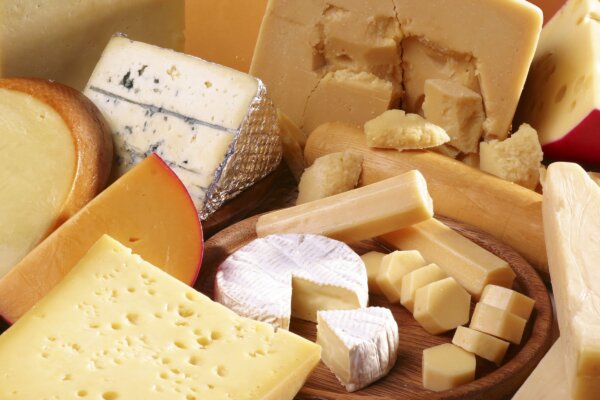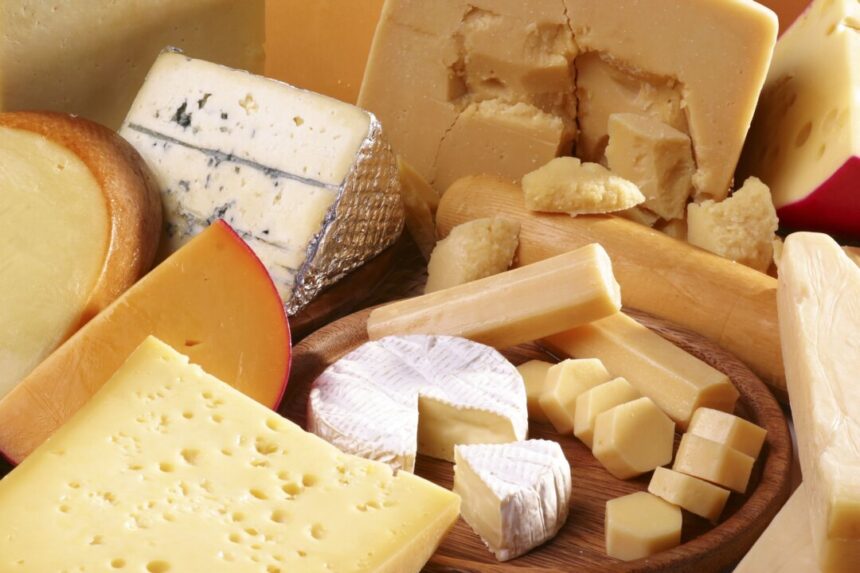
Real cheese, made from milk from cows that graze on green pastures, is loaded with nutrients and one of nature’s best providers of goodness for the body.
Health Viewpoints
I often say that if I were stranded on a desert island and only allowed one food, my choice would be real cheese—and by real cheese I mean cheese made with whole milk from cows allowed to graze on green pasture. (In the spirit of full disclosure, I am a cheesemaker.)
Real cheese is a complete food. It provides complete protein, a few carbs, a whole range of beneficial fatty acids, all the macro- and microminerals that humans need—especially calcium, phosphorus, and zinc—as well as every vitamin that humans require—the fat-soluble vitamins A, D, K2 and E, all the B vitamins, and even vitamin C. If you can get raw cheese, the enzymes intact in the final product make all these vitamins and minerals easy to assimilate.
Cheese Does a Body Good
A 2023 meta-analysis found that cheese consumption was inversely associated with all-cause mortality, cardiovascular mortality, stroke, estrogen receptor-negative breast cancer, Type 2 diabetes, and dementia. An earlier meta-analysis, from 2016, also showed that intake of dairy products such as cheese was associated with a neutral or reduced risk of Type 2 diabetes and a reduced risk of cardiovascular disease, particularly stroke.
Among cancers, milk and dairy intake was inversely associated with colorectal cancer, bladder cancer, gastric cancer, and breast cancer. Dairy product intake had a beneficial effect on bone mineral density. This analysis also found that consumption of dairy products was not associated with all-cause mortality, despite its saturated fat and cholesterol content.
Pseudo Cheese
All these benefits of cheese have not stopped the food industry from muscling in with “non-dairy,” vegan “cheeses,” now available in most supermarkets. They contain as their primary ingredient tapioca flour, arrowroot flour, potato starch, almonds, cashews, or yeast. Early versions of vegan cheese, based on soy protein, have not done well due to consumer concerns about estrogen levels. Most contain industrial seed oils such as canola, safflower, or sunflower oil.
Of most concern is the inclusion of “natural flavors” in the ingredient list of most nondairy cheeses, as well as other problematic additives such as xanthan gum, citric acid, titanium dioxide, maltodextrin, carrageenan, and “yeast extract.”
“Natural flavors” are made in a lab, just like “artificial flavors.” The only difference is that artificial flavors are made from petroleum and other non-food substances you can’t—or shouldn’t—eat, while natural flavors are derived from food sources, such as fruit or meat—or cheese.
More to the point is what artificial cheeses don’t include. Calcium for one (unless added), and zinc, the fat-soluble vitamins, B12, vitamin C, and beneficial probiotics. Synthetic cheese is not a good source of protein or the many special fatty acids that real cheese provides—like conjugated linoleic acids, arachidonic acid, and butyric acid. While cheese can cause digestive problems in some people, so can the ingredients in fake cheese—such as modified starch, tapioca flour, almonds, and industrial seed oils.
Nature’s Best
The best thing about real cheese is that it is a mother’s best friend—children love it, and it makes a great snack. Put cheese in their lunches or take cheese cubes on a trip. Rich in fat and protein, cheese helps keep blood sugar stable and wards off crankiness. It’s one of nature’s best sources of calcium for strong bones and teeth and feeds their growing bodies in many other ways.





